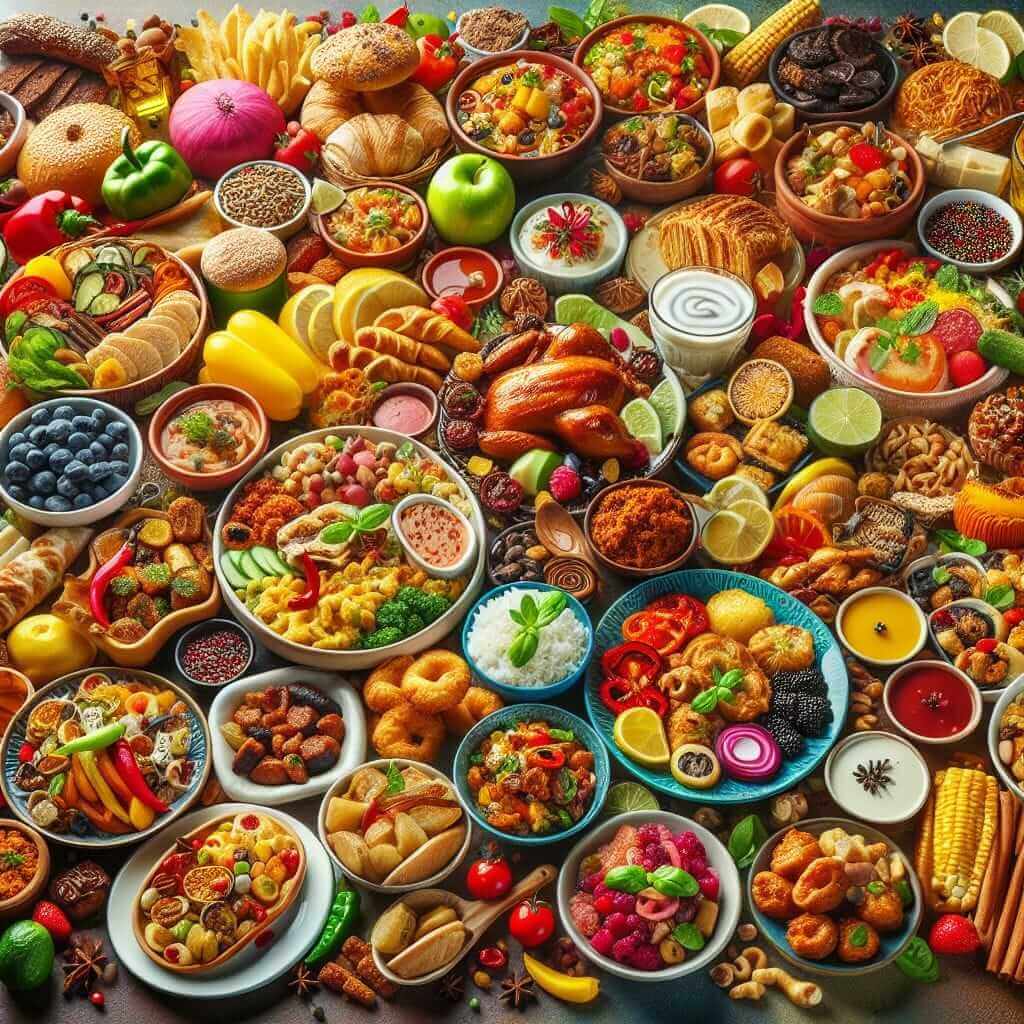Introduction: Savoring Success in IELTS Speaking
As an IELTS instructor with over 20 years of experience, I’ve witnessed countless students struggle with vocabulary, particularly in the Speaking test. One area that often trips them up is food-related topics. Whether it’s describing a favorite dish, discussing global cuisines, or expressing opinions about healthy eating, a strong food vocabulary can significantly enhance your IELTS Speaking performance. This article will equip you with the knowledge and strategies to confidently tackle any food-themed question that comes your way.
The Importance of Food Vocabulary in IELTS
Food is a universal language, and it frequently features in IELTS Speaking questions. Here’s why mastering food vocabulary is crucial:
- Demonstrating Fluency and Coherence: A wide range of vocabulary allows you to express yourself smoothly and connect your ideas effectively.
- Exhibiting Lexical Resource: Examiners assess your ability to use a variety of words accurately and appropriately.
- Conveying Cultural Understanding: Food is deeply intertwined with culture, and discussing it demonstrates a broader perspective.
Digesting the Vocabulary: Key Areas to Focus On
1. Types of Food and Dishes:
Go beyond basic terms like “fruit” and “vegetables”. Familiarize yourself with:
- Specific fruits and vegetables: mango, papaya, zucchini, eggplant
- Meat and seafood varieties: poultry, lamb, salmon, shellfish
- Cooking methods: stir-fry, bake, roast, grill
- Culinary terms: garnish, seasoning, aroma, texture
2. Describing Flavors and Textures:
Instead of simply saying “tasty” or “delicious”, explore adjectives like:
- Flavors: savory, tangy, spicy, bitter, aromatic, bland
- Textures: crunchy, creamy, chewy, tender, juicy
3. Expressing Opinions about Food:
Develop the ability to articulate your preferences and thoughts using phrases like:
- “I’m particularly fond of…”
- “I find that dish a bit too…”
- “I prefer my food to be…”

Sample IELTS Speaking Questions: A Taste of What to Expect
-
Part 1:
- What’s your favorite food and why?
- Do you prefer to eat at home or in restaurants?
- Has your diet changed over the years?
-
Part 2:
- Describe a memorable meal you have had.
- Describe a popular food from your country.
-
Part 3:
- What are the benefits of learning to cook?
- How has globalization impacted food choices?
Recipe for Success: Tips for Expanding Your Food Vocabulary
- Immerse Yourself in Food Culture: Watch cooking shows, read food blogs, and explore different cuisines.
- Create a Food Journal: Note down new food words and their definitions.
- Practice Describing Food Experiences: Talk about your meals and culinary adventures with others.
- Use Flashcards and Vocabulary Apps: These tools can help you learn and retain new words effectively.
Conclusion: Bon Appétit!
Mastering food vocabulary is a delicious way to boost your IELTS Speaking score. By expanding your knowledge, practicing your speaking skills, and employing the tips outlined in this article, you’ll be well-prepared to confidently discuss food-related topics and impress your examiner. Remember, the key ingredients are consistent effort and a genuine passion for language learning. Good luck!